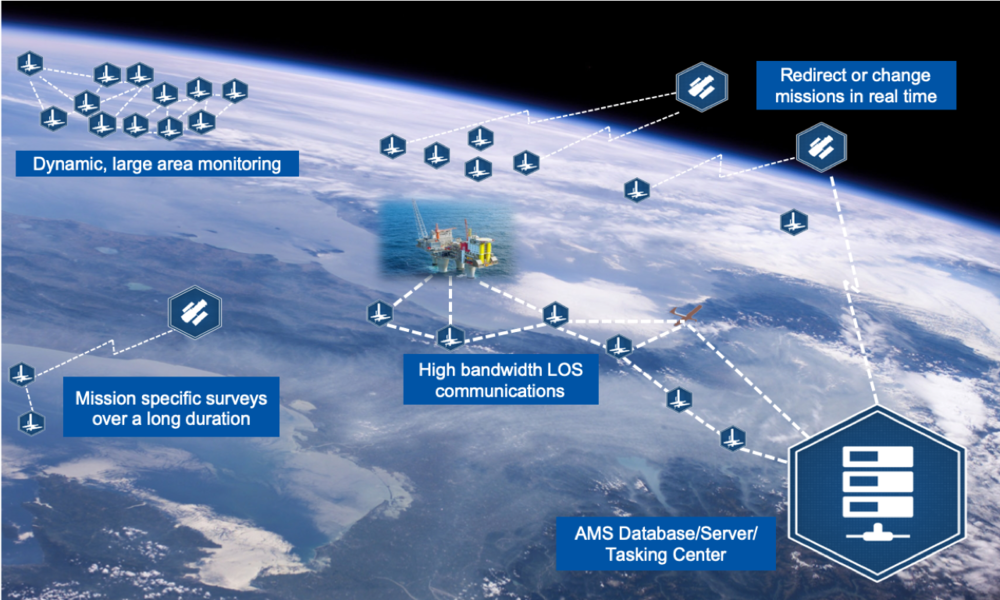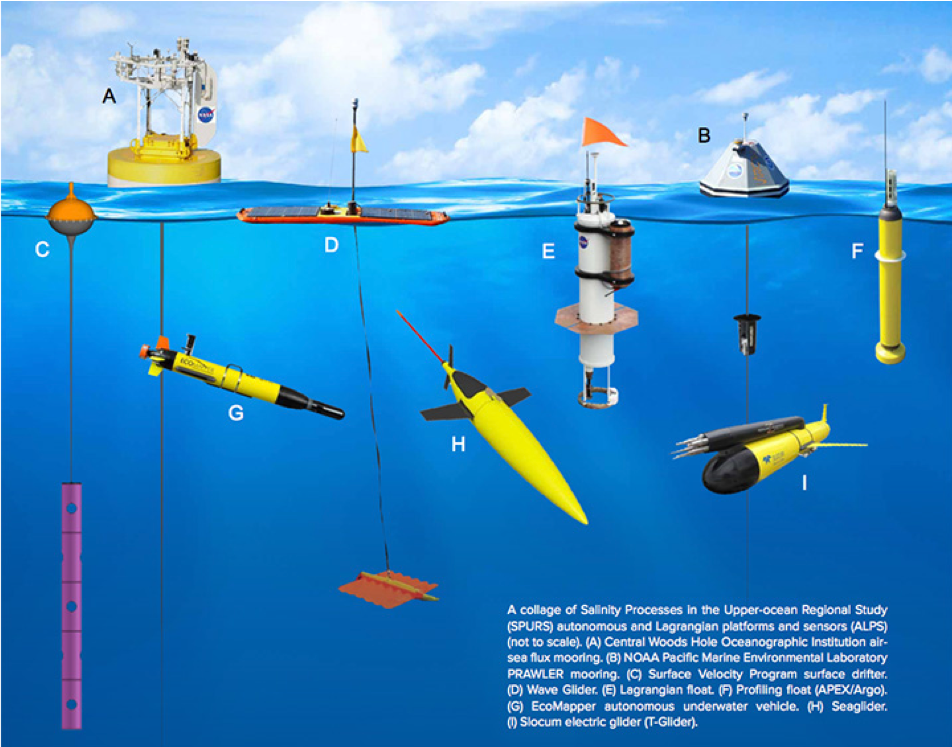Introduction
There are numerous issues that undermine the efficiency of marine research. Nevertheless, there have been numerous breakthroughs in this sphere recently, as technological solutions substantially enhance both the quality and volume of data that is collected via a wide range of sophisticated sensors. Therefore, it is essential to realize all the opportunities that ingenious approaches create in the field of marine science. Autonomous platforms are considered to play a crucial role in data collection, which has become the cornerstone of all the processes that enhance marine research.
Sustainability and Efficiency
The quality of data has significantly improved the efficiency of various types of research that previously had to rely solely on information collected during dedicated expeditions. Moreover, a direct consequence of the enhancements in sensor technology is an increase in the volume of data, accompanied by lower costs (Malde et al., 2020). The ability to construct platforms with different designs that can work autonomously and collect data with minimal assistance has become a significant success factor in the application of new technologies.
It is crucial to use all the existing potential fully, as there are numerous ways to enhance current ways of acquiring and processing information. Jones et al. (2019) pinpoint that the existing marine autonomous systems provide a wide range of solutions for significant monitoring challenges. One of the prominent examples includes the application of a wide range of autonomous marine vehicles for mapping upper ocean properties and the global ocean circulation. Previously researchers had to rely on satellite remote sensing, which was not efficient, as the electromagnetic radiation cannot penetrate water.
The amount of data that needs to be processed in order to provide optimal solutions to numerous industries and communities that rely on oceans and their resources is remarkable. Therefore, it is crucial to use technologies that require a minimal number of operators and researchers. Nornes (2018) claims that a significant benefit of different autonomous platforms is the ability to operate in cases that are believed to be dull, distant, or dangerous for operators. Thus, a wide range of issues that used to slow down the process of oceans exploration has finally been addressed with enhanced information technologies. Future advances in that sphere will prove to be instrumental in the exploration of oceans’ resources, which, in turn, can dramatically increase the currently available understanding of how the planet functions.
Different organizations across the world have pinpointed the importance of addressing the issues that currently threaten the proper functioning of ecosystems in the oceans. Several UN sustainability goals directly highlight the influence that marine ecosystems have on human lives. The current problems that are directly linked to oceans include those related to food security, health, and the use of oceans’ recourses. Moreover, various ecological organizations have long been proposing absolutely new approaches to the importance of marine ecosystems. The lack of data that once used to be a severe issue is now negligible, which eliminates the disbalances concerning the insufficient number of studies on oceans.
Networks
One of the significant ideas that can increase the overall efficiency of the data collection process is the creation of networks of autonomous platforms. Such an approach can significantly enhance the sustainability and reliability of an entire framework. Sharoni, Braginsky, and Guterman (2018) state that it is possible to improve the capabilities of autonomous marine vehicles – autonomous underwater vehicles and autonomous surface vehicles – by encouraging cooperation between them. Thus, the usefulness of data collected on one of the platforms can be multiplied by a body of evidence collected by other vehicles.

Sensors
The rise in the use of new types of sensors has long become a trendy topic concerning different industries, such as self-driving cars. At the same time, these technologies have allowed for enhanced efficiency of marine research. Optoacoustic imaging is encouraging a remarkable expansion in marine ecological monitoring, allowing for the collection of new biological and environmental data at a spatiotemporal scale (Aguzzi et al., 2020). Thus, multiple ingenious solutions in sensors production and imaging have led to discoveries that rapidly improve the living standards of millions of people.

Ecology
There are multiple spheres of science where autonomous platforms play a key role in acquiring quantitative data. According to An, Yu, and Zhang (2021), making autonomous sailboats more powerful can enhance marine science research, such as studies on ecosystems, biogeochemistry, and meteorology. Autonomous marine vehicles equipped with biogeochemical sensors help observe marine biogeochemical processes and ecosystem dynamics, covering multiple spatial and temporal scales (Chai et al., 2020). Oceans cover more than 70% of the planet’s surface and have an enormous impact on everyday activities performed by humans. Moreover, they provide people with a wide range of resources and food, ensure the functioning of essential ecosystem services, and directly influence climate.
Autonomous platforms of various designs are increasingly used in numerous ecological projects. Acquiring a substantial amount of data on the activities and behavior patterns of marine mammals and fish used to present a severe obstacle to the development and implementation of a sophisticated framework that could ensure the efficiency of protection methods. Acoustically equipped mobile autonomous marine vehicles, including deep-water profiling floats, gliders, and drifting surface buoys, can collect data on numerous marine mammal species over intermediate spatiotemporal scales (Fregosi, 2020). Thus, the application of new types of autonomous platforms has proven to be instrumental in protecting wildlife and saving various marine ecosystems in general.
Marine Archeology
Studies concerning climate, biology, and a wide range of industries are not the only spheres that benefit immensely from the introduction of extensive networks of autonomous marine vehicles. Marine Archeology is to become an extremely important field of study due to the availability of sophisticated tools related to underwater robotics and autonomous underwater vehicles. Langeland et al. (2019) claim that data management platforms provide access to processing data in real-time as well as providing researchers with advanced tools for analysis. Ødegård (2018) pinpoints that sound management of underwater cultural heritage requires methods and technologies for detection, monitoring, and investigation. Exploring large areas with SAS, classifying objects according to their spectral fingerprints with UHI, and recording them can provide a detailed explanation of different episodes of human history and culture.
Conclusion
The use of autonomous platforms in the field of marine science and technology has substantially enhanced the efficiency of numerous types of research. Various new technologies that allow for instantaneous processing of large amounts of data encourage more precise research results, which leads to better strategies to address issues in a number of spheres. Moreover, the application of advanced technologies, such as AI, helps employ new perspectives on existing problems. All the above mentioned has become possible due to the wide use of autonomous marine vehicles that are rapidly becoming even more cost-efficient and energy-efficient. What is more, multiple projects currently develop new approaches to the application of existing marine technologies that can substantially enhance the performance of existing autonomous platforms.
Reference List
Aguzzi, J. et al. (2020) ‘The hierarchic treatment of marine ecological information from spatial networks of benthic platforms’, Sensors, 20(6), pp. 1751–1772. doi: 10.3390/s20061751
An, Y., Yu, J. and Zhang, J. (2021) ‘Autonomous sailboat design: a review from the performance perspective’, Ocean Engineering, 238, 109753. doi: 10.1016/j.oceaneng.2021.109753
Chai, F. et al. (2020) ‘Monitoring ocean biogeochemistry with autonomous platforms’, Nature Reviews Earth & Environment, 1(6), pp. 315–326. doi: 10.1038/s43017-020-0053-y
Lindstrom, E. J. et al. (2017) ‘Autonomous multi-platform observations during the Salinity Processes in the Upper-ocean Regional Study’, Oceanography, 30(2), pp. 38-48. doi: 10.5670/oceanog.2017.218
Fregosi, S. (2020) Applications of slow-moving autonomous platforms for passive acoustic monitoring and density estimation of marine mammals. PhD Thesis. Oregon State University.
Fleets of networked datamarans sailing the seven seas (2019).
Jones, D. O. et al. (2019) ‘Autonomous marine environmental monitoring: application in decommissioned oil fields’, Science of the total environment, 668, pp. 835–853. doi: 10.1016/j.scitotenv.2019.02.310
Langeland, T. et al. (2019) ‘A data management platform for data harvesting and analysis from autonomous marine measurement platforms’, OCEANS 2019-Marseille conference proceedings. The Institute of Electrical and Electronics Engineers, Marseille, France. doi: 10.1109/OCEANSE.2019.8867275
Malde, K. et al. (2020) ‘Machine intelligence and the data-driven future of marine science’, ICES Journal of Marine Science, 77(4), pp. 1274–1285. doi: 10.1093/icesjms/fsz057
Nornes, S. M. (2018)Guidance and control of marine robotics for ocean mapping and monitoring. PhD Thesis. Norwegian University of Science and Technology.
Ødegård, Ø. (2018)Towards Autonomous Operations and Systems in Marine Archaeology. PhD Thesis. Norwegian University of Science and Technology.
Sharoni, C., Braginsky, B. and Guterman, H. (2018) ‘Cooperation between autonomous marine platforms’, 2018 IEEE International Conference on the Science of Electrical Engineering (ICSEE) conference proceedings. The Institute of Electrical and Electronics Engineers, Eilat, Israel. doi: 10.1109/ICSEE.2018.8646050